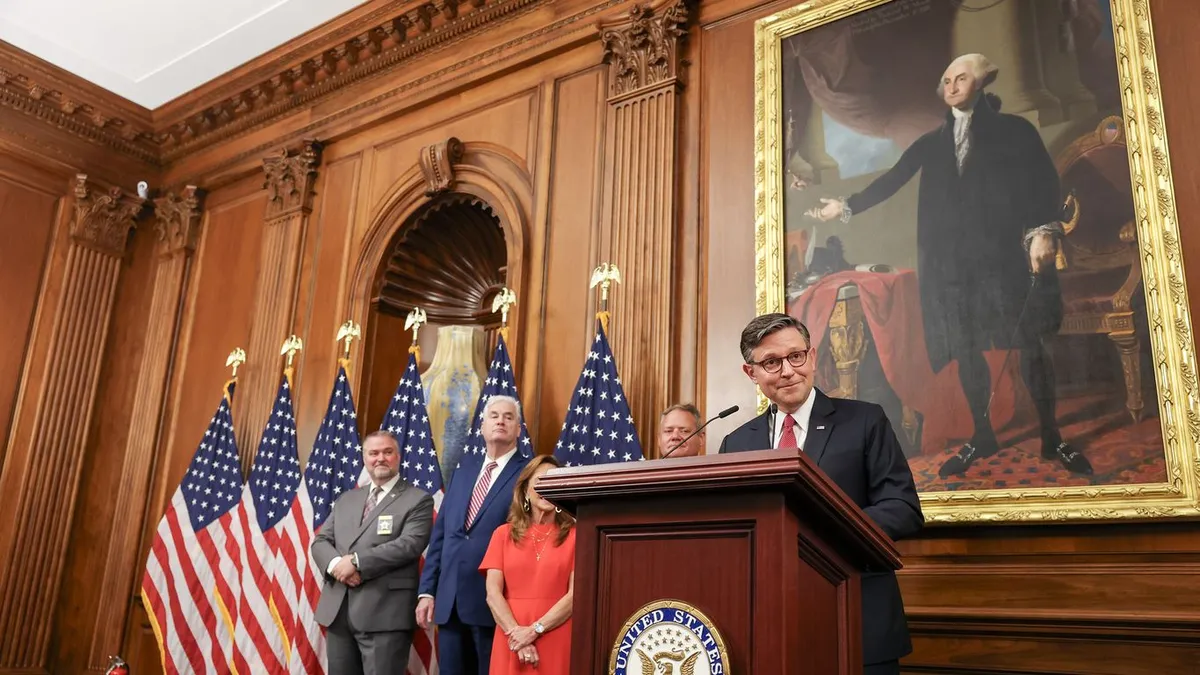
On Tuesday, Speaker Mike Johnson made headlines by calling the War Powers Act unconstitutional amidst a growing bipartisan effort to limit President Trump's authority to execute unilateral military strikes on Iran. This statement marks a significant moment in the ongoing debate over the balance of power between Congress and the presidency regarding military actions.
Johnson's comments represent his strongest indication yet that he opposes the movement to utilize the War Powers Act as a means for Congress to exert its authority over the president's military decisions. "Many respected constitutional experts argue that the War Powers Act is itself unconstitutional," Johnson told reporters on Tuesday. He further expressed his belief that the Act violates the Article 2 powers granted to the commander in chief, underscoring his perspective that this legal framework should not apply in this context.
In the current political landscape, Rep. Thomas Massie from Kentucky, the only Republican sponsor of a resolution aimed at curbing Trump's ability to escalate military actions in Iran, indicated he might withdraw his efforts after Trump announced a ceasefire agreement between Israel and Iran on Monday. Despite this development, congressional Democrats continue to push forward in their initiative to send a clear message regarding Congress' constitutional authority to declare war.
A vote on Sen. Tim Kaine's war powers resolution could be on the horizon, potentially occurring as soon as Wednesday. However, the decision to postpone a planned briefing on Iran could affect the timing of this critical vote.
Historically, Speaker Johnson and many Republicans have maintained that President Trump possesses the authority to take military action against Iran without needing congressional approval. Johnson stated, "The strikes on Iran's nuclear facilities were clearly within President Trump's Article 2 powers as commander in chief. It shouldn't even be a dispute." This assertion reflects a broader Republican consensus on the president's military authority, even as tensions rise regarding the scope of that power.
Conversely, Democrats, along with some Republicans, argue that President Trump's military actions against Iran's nuclear facilities constituted a violation of the Constitution. They contend that the president acted without the explicit authority required from Congress. Johnson has previously signaled his intent to block Massie's privileged resolution, which has garnered support from over 50 Democratic co-sponsors, highlighting the deep divisions in Congress over this issue.
As the debate unfolds, the implications of these discussions will likely resonate throughout the political landscape, influencing future military engagements and the ongoing conversation about the constitutional limits of presidential power.